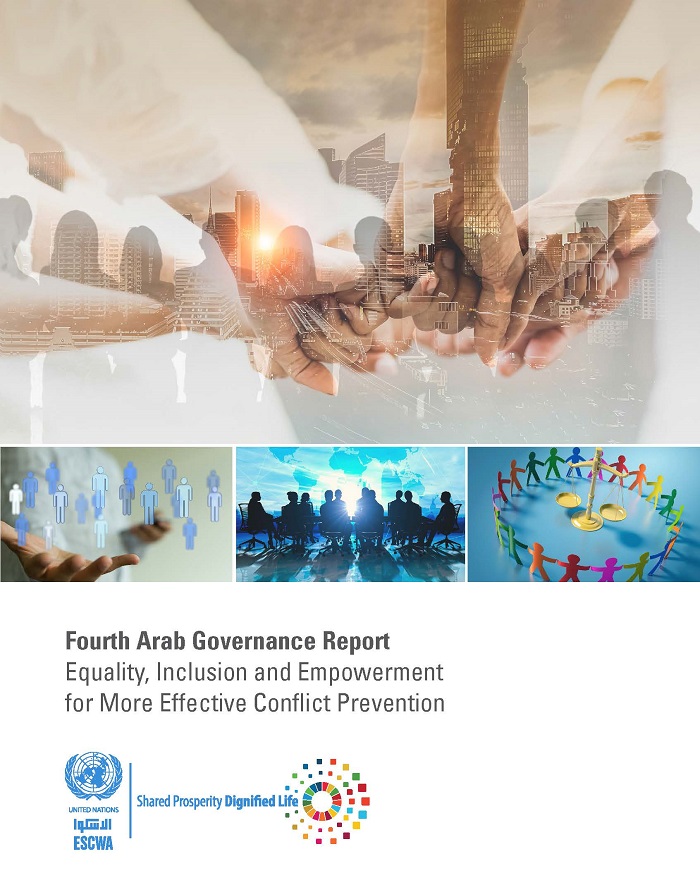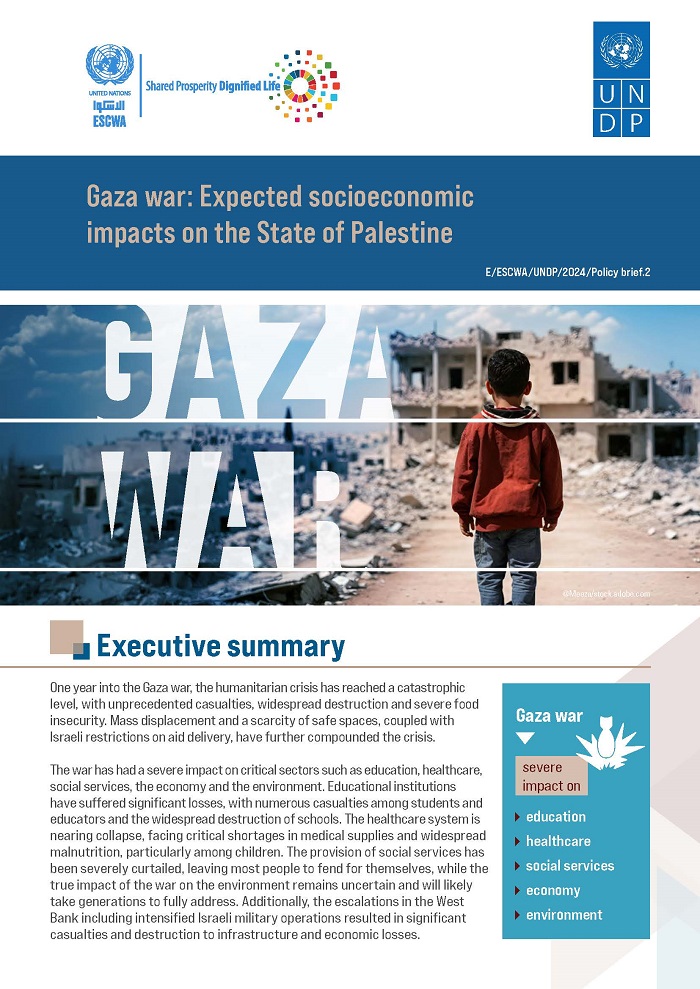
ESCWA Publication: E/ESCWA/CL6.GCP/2021/1
Country: Arab region
Publication Type: Reports & studies
Cluster: Governance and Conflict Prevention
Focus Area: 2030 Agenda, Governance & enabling environment, Resilient development & conflict prevention
Initiatives: Governance and institution building
SDGs: Agenda 2030
Keywords: Governance, Institution building, Conflict, Peace, Peacebuilding, Group conflict prevention, Sustainable development, Equality, Empowerment, Violence, Radicalism, Political conditions, Organized crime, Military expenditures, Human development, Economic policy, Dispute settlement, Displaced persons
Fourth Arab Governance Report: Equality, Inclusion and Empowerment for a More Effective Conflict Prevention
February 2022
The Fourth Arab Governance Report advocates urgent action on several governance fronts and argues that exclusion, structural inequality, the feeling of disempowerment, and unattained human potential are increasingly causing popular discontent with States and their institutions and could eventually lead to further social unrest, political instability and serious conflict if left unattended.
The report argues that, despite relative progress in the provision of public services such as access to basic health and education and improvements in general standards of living, which is however unevenly achieved across the region, progress in the Arab region still falls short of its potential. The number of poor has been increasing, and the intractable problem of unemployment and underemployment is still inadequately addressed; rising and systemic inequality, inadequate access to justice and economic opportunities, exclusion, disregard to human rights, shrinking political space, growing repression, and tightening freedoms are all factors undermining progress towards achieving the 2030 Agenda in most Arab countries. Poor accountability, corruption, insufficient transparency, capture of the elite of collective resources, and weak State institutions including the public administration have all contributed to the insufficient growth of political and institutional systems that would allow for a public-responsive polity to evolve. The COVID-19 pandemic underscores the inadequate level of preparation of public institutions to address old and emerging challenges and unveils the dangerously growing gap of trust between the State and its citizens. This report stresses the urgency to address deep-seated challenges, namely, inequality, exclusion and disempowerment and suggests policy options in this regard. It furthermore underlines the concept of human security and its foundational importance to all future governance reforms in the Arab region for sustainable development.
Related content
2030 Agenda
, Governance & enabling environment
, Resilient development & conflict prevention
,
The Fourth Arab Governance Report advocates urgent action on several governance fronts and argues that exclusion, structural inequality, the feeling of disempowerment, and unattained human potential are increasingly causing popular discontent with States and their institutions and could eventually lead to further social unrest, political instability and serious conflict if left unattended.
The report argues that, despite relative progress in the provision of public services such as access to basic health and education and improvements in general standards of living, which is however unevenly achieved across the region, progress in the Arab region still falls short of its potential. The number of poor has been increasing, and the intractable problem of unemployment and underemployment is still inadequately addressed; rising and systemic inequality, inadequate access to justice and economic opportunities, exclusion, disregard to human rights, shrinking political space, growing repression, and tightening freedoms are all factors undermining progress towards achieving the 2030 Agenda in most Arab countries. Poor accountability, corruption, insufficient transparency, capture of the elite of collective resources, and weak State institutions including the public administration have all contributed to the insufficient growth of political and institutional systems that would allow for a public-responsive polity to evolve. The COVID-19 pandemic underscores the inadequate level of preparation of public institutions to address old and emerging challenges and unveils the dangerously growing gap of trust between the State and its citizens. This report stresses the urgency to address deep-seated challenges, namely, inequality, exclusion and disempowerment and suggests policy options in this regard. It furthermore underlines the concept of human security and its foundational importance to all future governance reforms in the Arab region for sustainable development.



